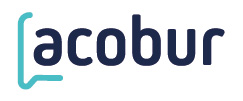
- 20/10/2017 13:13:17
- Fuente original
Fuente original
Roche's Top Drug Stumbles in Europe as Biosimilars Take Hold
Biosimilar impact may worsen in next quarters, executive says
Roche Holding AG’s top-selling drug Rituxan saw sales slide in Europe last quarter, hurt by competition from cheaper copycat medicines called biosimilars -- a harbinger of things to come for the aging cancer treatment.
Europe was the only place where sales fell for the medicine, a mainstay of treatment for blood cancers and some autoimmune diseases first approved two decades ago. Rituxan’s revenue fell 16 percent, accelerating from a 3 percent decline the prior quarter. The impact will probably worsen in coming quarters, Daniel O’Day, Roche’s pharma chief, said on a conference call.
Roche is relying on new drugs such as the multiple sclerosis therapy Ocrevus to drive growth as its trio of biggest moneymakers, Rituxan, Herceptin and Avastin, face competition from biosimilars and in some cases from newer treatments as well. The medicines helped overall sales rise 4.9 percent last quarter.
The report, “while flattering on the topline, doesn’t assuage concerns over a biosimilar-impacted future,” Tim Anderson, an analyst at Sanford C. Bernstein & Co., wrote in a note to clients.
Roche shares fell 0.7 percent to 242.60 Swiss francs at 9:23 a.m. in Zurich. The stock has returned 8 percent this year, including reinvested dividends, compared to a 17 percent return from the SMI Index.
Some of Rituxan’s sales decline was caused by “normal price pressures” in Europe, according to O’Day. Total revenue for the medicine, which includes the U.S. and Japan, stayed steady at 1.8 billion Swiss francs ($1.8 billion).
The drug, also known by its generic name rituximab, is the first major cancer treatment to have become vulnerable to competition from biosimilars in Europe in recent years. A copycat version from South Korea’s Celltrion Inc. was approved in February by the European Medicines Agency for treating some forms of the disease, followed by two biosimilars from Novartis AG in June. A month later, additional versions of rituximab from Celltrion were also cleared for use.
“It’s still early days with Rituxan and with a couple of competitors, and we recognize that that’s going to increase over the course of coming quarters and coming years,” O’Day said.
A biosimilar may become available in the U.S. next year. The Food and Drug Administration is reviewing an application by Celltrion and Israel’s Teva Pharmaceutical Industries Ltd.
Biosimilars for Herceptin will also start to have an impact in Europe this quarter and into the coming year, O’Day said. Cheaper copies of Avastin are further off, but the drug is facing competition from new immune therapies that recruit the body’s own cells to fight off tumors.
Roche’s overall sales rose to 13.1 billion francs, the Basel, Switzerland-based drugmaker said Thursday in a statement. That met the average estimate of seven analysts surveyed by Bloomberg.
Roche reiterated its forecast for the year, saying that sales and core earnings per share, which exclude some costs, will grow by a mid-single digit percentage at constant exchange rates. It also said it intends to increase its dividend in Swiss francs. The company reports earnings on a half-year basis.
Leer el artículo original completo

